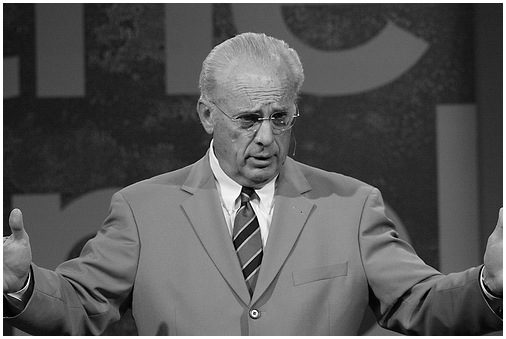Today we join Phil Moore as he introduces us to 1 and 2 Corinthians:
STRAIGHT TO THE HEART OF 1 & 2 CORINTHIANS
INTRODUCTION: THE KIND OF CHURCH GOD CAN USE
“To the church of God in Corinth, to those sanctified in Christ Jesus and called to be holy.” (1 Corinthians 1:2)
If you think that 1 and 2 Corinthians are somebody else’s mail, then you need to think again. Paul wrote them for you and he wrote them for me. Yes, I know that he wrote to tackle very real issues in a specific local church, but right from the outset his goal was far bigger than the city walls of Corinth. He copied them to “all the saints throughout Achaia” and to “all those everywhere who call on the name of our Lord Jesus Christ.”1 They are God’s message to believers in any local church in any place at any time. They are a detailed description of the kind of church God can use.
A few weeks ago, I happened to be in the city where I lived as a toddler. On a whim, I went back to visit my old house, which I remembered as a sprawling mansion with a massive front garden. When I reached the address I had to double-check the number. It was a tiny house with an even tinier garden, but which years of fond nostalgia had made much larger in my memory. We can do the same with our view of the Early Church, if we’re not careful, which is why God has given us Paul’s letters to the Corinthians.
The Lord preserved these two letters to remind us of how bad the Early Church was. Many Christians assume that the unstoppable advance of the New Testament Church was due to her pure and unadulterated passion for Jesus. God tells us in no uncertain terms that it wasn’t. Parts of it were full of quarrelling, infighting, litigation and false teaching. Some of its members frequented prostitutes, committed incest and got drunk on communion wine. Some of its Sunday services were so disorderly that the apostle Paul concluded that “Your meetings do more harm than good”.2 Nostalgic views of the Early Church are not just false, but also self-defeating, so God gives us these letters to show us the reality. They remind us he has always advanced his Kingdom through struggling, sin-ridden churches like our own. No matter what problems may exist in our own churches today, these letters insist that they are still the kind that God can use.
The Lord also preserved these letters to remind us of how fruitful the Early Church was. He wants to free us from the shallows of undersized ambition by showing us what happens when everyday people take his promises seriously. Corinth was the fourth-largest city in the Roman Empire, with a growing population of two thirds of a million. It was the capital city of the province of Achaia, and effortlessly rich through simple fact of geography. The rocky seas off the southern coast of Greece were treacherous, but sailors could bypass them by taking an overland shortcut across the Corinthian isthmus. They could transport their cargoes along its six-mile-long diolkos, a trackway which joined the Adriatic to the Aegean, and in doing so they turned Corinth into a wealthy world trade centre. It became a sailor’s city, a peddler’s paradise, a haven for vice which was well-fed and arrogant. There was a reason why Paul arrived at the city in late 50AD on his Second Missionary Journey full of “weakness and fear, and with much trembling.”3 It was about as unpromising a location for a new Christian church-plant as any other town in the whole Roman Empire.
Yet, against all odds, Paul’s mission was successful. When the Jews opposed him, he converted not just one synagogue-ruler but two, and one of them, Sosthenes, sat with Paul as he wrote 1 Corinthians.4 When the sophisticated Gentiles scorned his message of the cross, he persisted until it won over thieves and drunkards and playboys and prostitutes. Paul spent eighteen months in Corinth until early 52AD, by which time the Corinthian believers were reaching other cities too.5 The very fact that Paul can copy his letter to “all the saints throughout Achaia” is a reminder that Corinth was a mighty success-story. For all its faults and failings, it was still the kind of church God could use.
There was a reason why this church was so bad and yet so fruitful. The Lord also preserved these letters to remind us of how much grace he pours out on the Church through the Gospel. The Early Church didn’t conquer the ancient world because of its own inherent godliness or purity. It did so because grace turned sinful people into “the church of God,” “the field of God,” “the building of God” and “the temple of God.”6 It did so because grace made them “the body of Christ,” “the aroma of Christ” and “a letter from Christ” which the world could not ignore.7 Paul tries to capture this paradox here in verse 2 when he tells his readers that they are “sanctified in Christ Jesus and called to be holy.”8 In spite of their sin, God had declared them to be flawlessly holy through the death and resurrection of his Son. Now they must learn to live in the light of this fact by faith.
Paul wrote 1 Corinthians from Ephesus in early 55AD in response to troubling news which was reaching him from Corinth.9 He told his readers to remember whose church it is (chapters 1-4), and to live according to God’s teaching about sex in the city (chapters 5-7). He told them to remember whose world it is (chapters 8-10) and to live a holy lifestyle as God’s church in the city (chapters 11-16).
Sadly, the letter was not enough. He was forced to pay them an emergency visit shortly afterwards. He returned to Ephesus in tears, having stretched their relationship to breaking-point, and he wrote 2 Corinthians from Macedonia that autumn to renew his appeal and repair their relationship. Once again, he urged them to remember whose church it is (chapters 1-7), and to demonstrate their faith in God through their generous use of cash in the city (chapters 8-9). He ended with a warning to remember whose power it is (chapters 10-13), because he never stopped believing they were the kind of church God could use. In the end, this second letter won over the Corinthians.
I have written this book to help you to see the Early Church as it really was – a Church full of failings but even more full of grace. I want to rid you of any spiritual nostalgia which glosses over the reality of the first-century Church. Because if God painted brushstrokes of grace on a cracked and dirty canvas like the church at Corinth, then we have reasons to be confident despite the weaknesses which plague our own.
So let’s walk together through the message of 1 and 2 Corinthians. Let’s read Paul’s description of the kind of church God can use.












